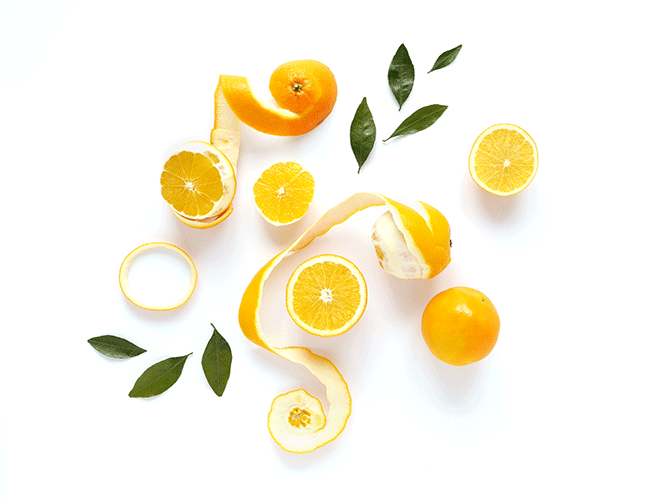The organic food market, including processed foods, continues to grow each year. Food ingredients making up processed foods undergo a rigorous review to be certified organic. Because of this, there are limited natural ingredient options on hand. Citri-Fi® 400 organic citrus fiber is one of very few citrus fibers available. This citrus fiber provides high water holding and emulsification properties which makes it key to creating organic foods with shelf stability, great taste and natural texture.
The organic food market exploded over the past few decades. What started with a heightened demand for organic fruits and vegetables expanded into other categories such as canned foods, bakery flours, sauces and spices. According to the Organic Trade Association (OTA), the U.S. organic food sales in 2020 grew 12.8% to a new high of $56.4 billion. And about 6 percent of the food sold in the United States was certified organic. However, the U.S. is not alone with demanding more organic foods on the market. This trend streams across the globe in other regions like Europe and Asia Pacific.
Organic food sounds healthy and wholesome, but what does this term actually mean? And why is the status important in consumers’ minds? First off, in the U.S., the term “organic” is governed by the USDA organic standards. These standards include methods that support the cycling of resources. For example, USDA organic means ecological balance and conservation of biodiversity. It forbids the use of synthetic fertilizers, irradiation treatments and genetic engineering. This protocol is important to consumers who value the environment and the ecological system. Consumers also assume they are not only bettering the world around them but their bodies too. Many believe that eating organic equates to healthier choices like consuming foods containing organic citrus fiber.
Certified organic foods go thru a rigorous approval process. Food products like fresh produce are not the only foodstuffs certified. For instance, processed foods also undergo similar validation processes. The food ingredients that make up the processed foods such as savory sauces or baked breads are required to be certified USDA organic before food products can make the claim. Food manufacturers can use permutations of the organic claim depending on how much of the finished product contains organic ingredients.
Formulating with Organic Food Ingredients
Formulating organic processed foods can be challenging. Product developers work with a set of parameters such as clean label and natural when creating new organic food products. Many food ingredients that are certified organic and considered clean label, such as some starches and food gums, have limited functionality. As a result, this impacts food product’s shelf stability, taste and texture.
However, today, new functional ingredients are emerging such as organic citrus fiber. This clean label fiber, Citri-Fi 400, is one of very few certified organic citrus fibers available on the market. What makes citrus fiber so special? First off, not all citrus fibers are created the same. Some citrus fibers go thru chemical processes using solvents to strip away impurities. However, this also affects the functionality. Citri-Fi 400 is byproduct from organic citrus fruit processing. This upcycled ingredient goes thru a process free from chemical modifications which preserves the intact native pectin. As a result, this organic citrus fiber provides high water holding and emulsification.
Organic Citrus Fiber & Food Application Use
These functional benefits improve a variety of food products including meat substitutes, dairy alternatives like plant milks, fruit preparations and sauces. For example, in meat substitutes, Citri-Fi 400 at 0.5% - 2.0% binds water and oil to produce the juicy texture and freeze/thaw stability. In plant-based milks using oat, almond, soy or rice bases, this organic citrus fiber at 0.1% to 0.4% improves viscosity and generates a more natural mouthfeel. When product developers create fruit preparations, Citri-Fi 400 at 1.5% to 2.5% can extend pectin and create improved textures. And this natural fiber at 0.2% to 1.0% thickens, stabilizes emulsions, and/or reduces egg content in a variety of sauces, dressings and condiments.
Besides the functional benefits, this USDA certified organic Citri-Fi 400 comes in several particle sizes. The plant-based fiber series is non-GMO and clean label. For instance, labeling options include citrus fiber, dried citrus pulp or citrus flour which resonate well in the natural markets. And this fiber does not carry an E-number which benefits regions like Europe.
For more information about the new Citri-Fi 400 organic citrus fiber line, please contact us!


